By Nerissa Anku, Just Energy Transition Coordinator
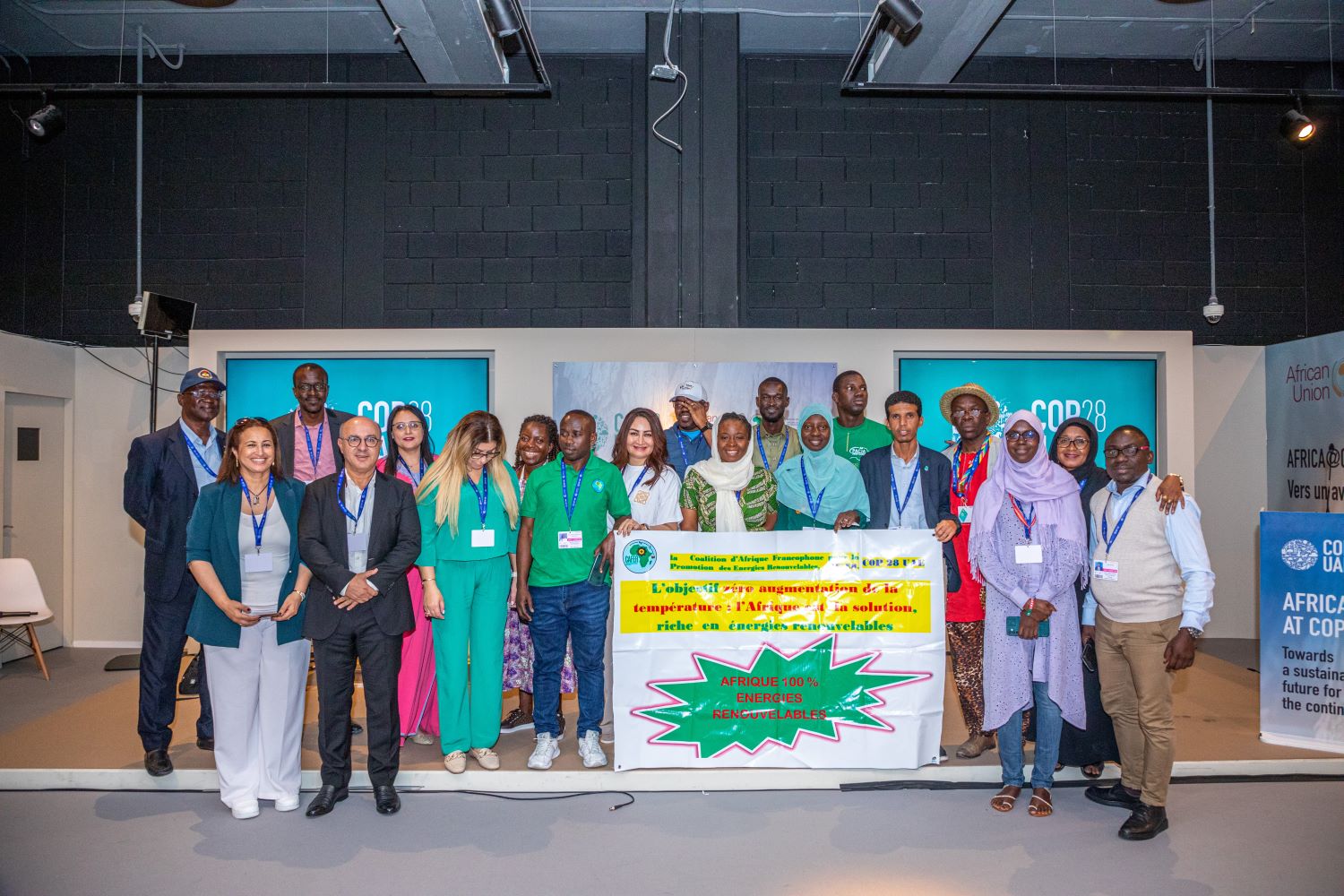
In my capacity as Global Greengrants Fund (GGF)’s Coordinator for a Just Energy Transition, I was honored to join fellow representatives from our global network of grassroots activists at COP28. Convened in the United Arab Emirates last December, COP28 drew over 83,000 participants into a critical dialogue on reconciling sustainable development with urgent climate action. Global Greengrants Fund mobilized $270,980 to support the attendance of about a hundred and forty grassroots activists from the Global South to participate, shape agendas, announce grassroots-led campaigns, and deepen coalitions while bearing witness to the ‘UAE Consensus’ agreement to transition away from fossil fuels.
We’re currently not on track to restrict the increase in global average temperature to 1.5 °C above pre-industrial levels–or to even keep the increase under 2 °C. In light of this, COP28 concluded with the ‘UAE Consensus’: to transition from fossil fuels and achieve net zero emissions. It encourages parties to submit comprehensive, nationally determined contributions (NDCs). It also includes a specific goal to triple renewable energy sources and double energy efficiency by 2030.
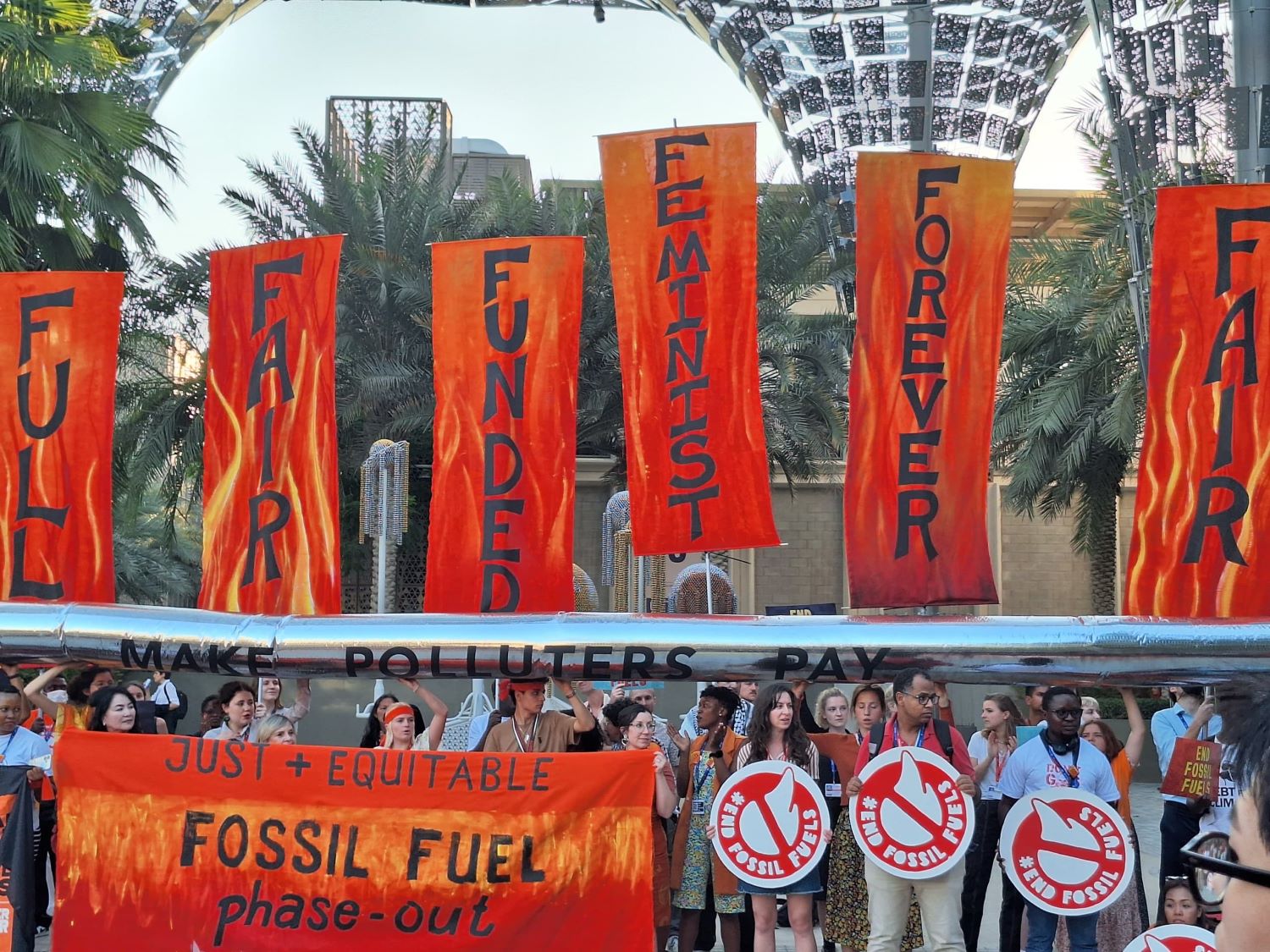
Yet, as an activist with over a decade of experience, I question the sincerity of this declaration, pronounced by the CEO of a national oil company and supported by 2,450 fossil fuel lobbyists from around the globe. Some have themed this “something for everyone, not enough for the world.” The final UAE Consensus, despite having some important aspects, is undoubtedly very weak. While the text does recognise the need for “deep, rapid, and sustained reductions in greenhouse gas emissions” to stay in line with 1.5°C, the listed efforts simply do not offer the chance of achieving this goal. Could this declaration be a trophy presented to the United Arab Emirates government for hosting the largest COP ever? Or a token of gratitude for allowing fossil fuel companies to dominate the event? Are the fossil fuel companies aware their reign is nearing its end and are now merely seeking a new market for profit?
The “UAE Consensus” is a difficult ‘victory’ for environmental activists who continue their resistance against the exploitation of fossil resources. Activists often face unlawful detention for defending the Earth, and many have lost lives in the contentious battle between people, the planet, and profit-seekers.
COP28 fell short in paving the way for an equitable transition to renewable energy. There was a lack of clarity on how Article 6.2 of the Paris Agreement, which allows countries to trade carbon credits bilaterally, should operate. This ambiguity provides an opportunity for carbon markets to thrive, potentially leading to more harm than good.
The ‘UAE Consensus’ calls for a shift towards a new architecture of climate finance to support developing countries who bear the brunt of the climate crisis, yet very little was achieved to facilitate an equitable transition to renewable energy. The conference yielded merely $792 million in pledges to operationalize the Loss and Damage Fund – a fund offering financial assistance to vulnerable countries already experiencing the impact of irreversible climate breakdown.
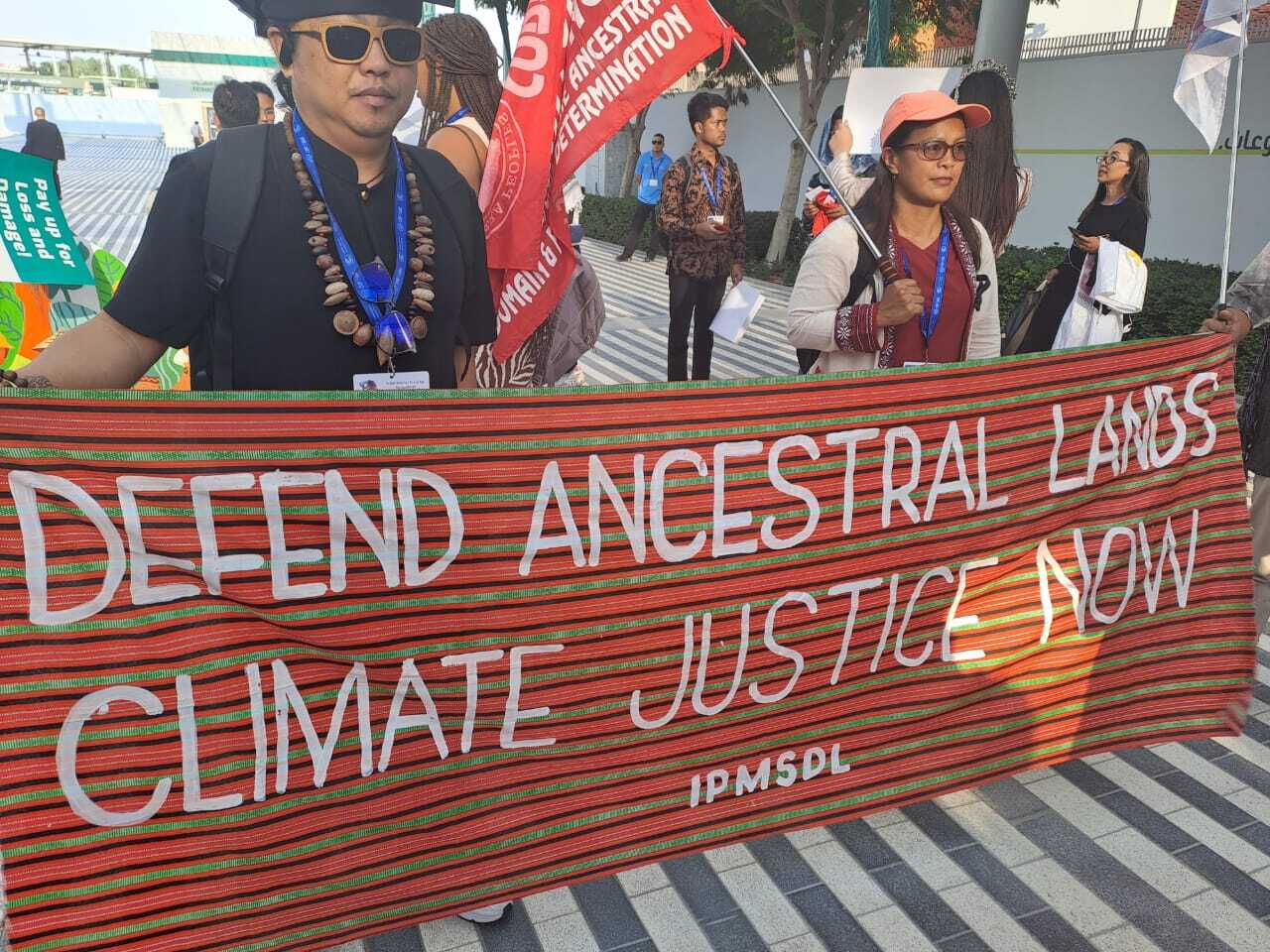
Of the more promising announcements were the Emirates Declaration on Climate and Health, which included a billion dollars in support for climate and health activities and marked the first-ever health day at a COP with 123 signatories. The declaration aims to draw attention to the adverse effects of climate change on human health. Additionally, COP28 appointed the first official Youth Climate Champion, Her Excellency Shamma Al Mazrui, who was previously the youngest Minister of State in the world.
COP28, while a contested place, can still be a vital zone of organizing. Global Greengrants Fund supported grantee partners to attend and engage, recognizing that a sustainable climate response must be led by those closest to the challenges, and most impacted.
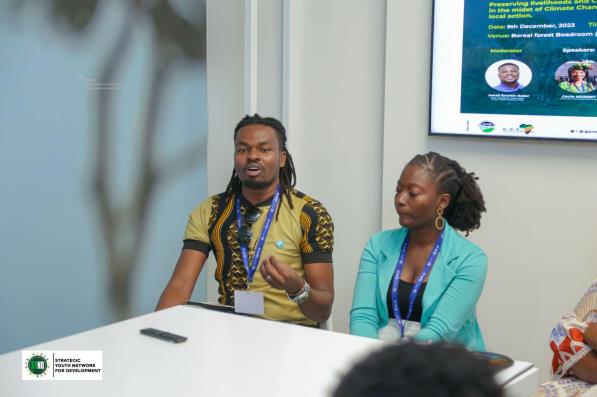
Efforts that grantee partners participated in include:
- Health of Mother Earth Foundation & Oil Watch Africa: Oil Watch Africa and the Health of Mother Earth Foundation exhibited artistic works, reports and photographs of the extensive pollution of the Niger Delta area due to oil spillage and gas flaring by transnational corporations of the petroleum industry. They also organized side events and press conferences on the dangers of Geoengineering, Greenwashing and promulgated Rights of Nature as a systemic solution to the climate crisis.
- The People of the Global South, led by PACTO, launched the Manifesto for an Ecosocial Transition: The network of civic society organizations across the Global South proposes transformation against corporate, neo-colonial, and unsustainable transition. It invites various societal sectors to build collective ideas and alter the balance of power. The manifesto is not a list of demands but an invitation to build collective ideas and a shared path to social change.
- Don’t Gas Africa Campaign: Grassroots activists from the Africa Climate Movement attended COP28. They were able to showcase their work through exhibitions, promote the “Don’t Gas Africa” campaign, contribute to panel discussions/side events, and connect with other activists from the Global South to exchange learnings for transforming the Africa-based campaign into a “Don’t Gas the Global South” one.
- Coalition d’Afrique Francophone for the Promotion of Renewable Energies: CAF-ER promoted renewable energy in French-speaking Africa at COP28. They highlighted the role of civil society in advocating for renewable energy transition and plan to organize capacity-building sessions to address challenges such as lack of access to information and resources and unfamiliarity with technical jargon.
- Strategic Youth Network for Development: Youth activists from Ghana attended COP28 and contributed to discussions on biodiversity, minerals extraction, and green entrepreneurship. They emphasized the role of young people, especially Indigenous youth, in shaping societal narratives and underscored the need for resources, freedom of expression, and respect for culture and traditions for their effective involvement.
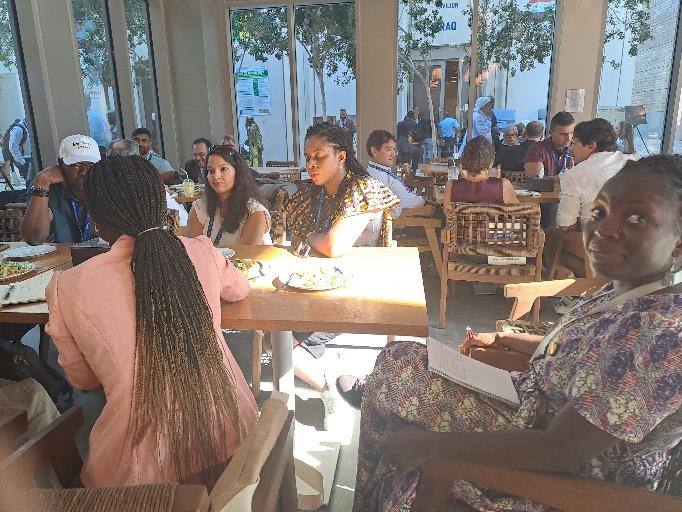
We had the privilege of having lunch with several activists who attended the event. Despite the reservations about COP28, many appreciated the exceptional networking opportunities it offered. For example, activists attended the launch of the Roots Rising Campaign by GGF, GAGGA, and WEDO, which aims to secure at least $100 million for gender-just climate action by 2026; it convened UN representatives, government officials, philanthropy, and grassroots activists. A young Ugandan feminist grantee partner praised it as the best session at COP28.
The support from GGF for attendance at COP28 offered a unique opportunity to observe how different countries are innovating to combat climate change and to understand how these innovations can be tailored and expanded for other contexts.
The urgency of the climate crisis demands a united and unwavering commitment to action. Funding activists armed with grassroots insight and serving as the planet’s conscience at the UNFCCC’s Annual Convention of Parties (COP) is critical for amplifying the voices of those most affected by climate change and bridging the divide between complex scientific jargon and relatable narratives. By investing in activists and supporting their participation in the UNFCCC’s COP28, funders can contribute to a more just, inclusive, and sustainable future.
